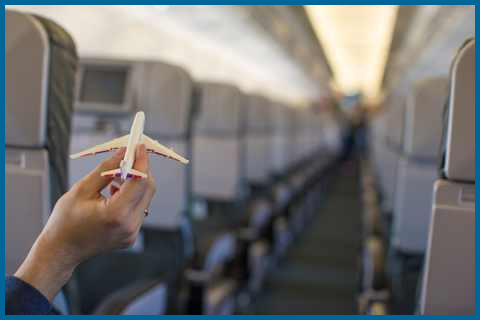 As members of one of the busiest service industries in the country, air travel employees can’t afford the time it takes to wait in traditional security lines. It’s only natural that a faster, more efficient method be used to screen them for threats and hazards, but has that focus on efficiency opened up exploitable gaps in airport employee screening?
As members of one of the busiest service industries in the country, air travel employees can’t afford the time it takes to wait in traditional security lines. It’s only natural that a faster, more efficient method be used to screen them for threats and hazards, but has that focus on efficiency opened up exploitable gaps in airport employee screening?
Fast Lane for Smuggling
According to a February 2015 article by CNN’s Scott Zamost, Drew Griffin and Curt Devine, the “vast majority” of airport employees that have access to the tarmac – and thus, the planes themselves – do not go through a daily security screening or a metal detector. There are ID badges to be swiped and even biometric scans in some of these fast security lanes, but simply verifying the identities of each employee may not be enough. The article’s authors cite a pending federal case against an employee of Hartsfield-Jackson International Airport in Georgia, in which more than 150 guns were recovered from a smuggling ring. The employee simply walked into work with the guns concealed on him, through the metal detector-less employee security line, and handed them off to a passenger that had already cleared security to take onto his flights.
Ongoing Airport Employee Screening Is Needed
Most employees and employers associate criminal background searches with the beginning of employment; they are part of a checklist to get in the door and become an afterthought once an individual is hired on. With the constant concern over security breaches and terrorism, this tack is no longer viable. In the wake of the Atlanta scandal, officials admitted to CNN in another article from the same trio of authors that airport workers are not subject to ongoing airport employee screening background checks. This poses obvious issues – if an employee falls into a difficult financial situation, or begins associating with radical groups, they are naturally a much bigger threat to security than they were at hiring. With fees incorporated into ticketing and baggage charges to support and expand security measures, it’s not a stretch to say that passengers are probably expecting a better return on that investment than this one-and-done philosophy for airport employee screening background checks.
If even trustworthy passengers are subject to screenings and random searches each time they fly, individuals with access to the planes themselves should come under equal scrutiny, if not more. As the trial in Atlanta plays out, it’s likely that ongoing airport employee screening background checks will become as much a part of the flight experience as slipping off one’s shoes preemptively in the security line.


Leave a Reply
You must be logged in to post a comment.